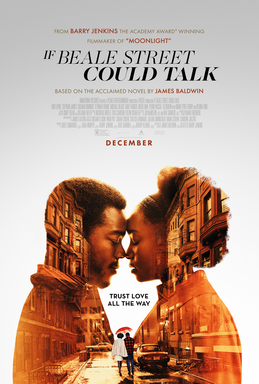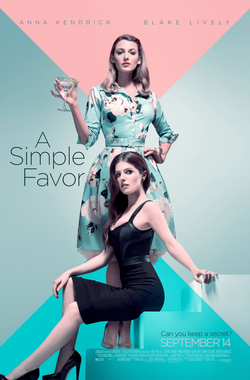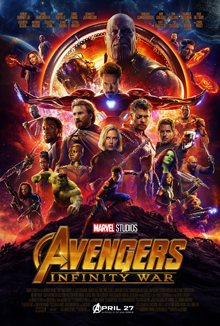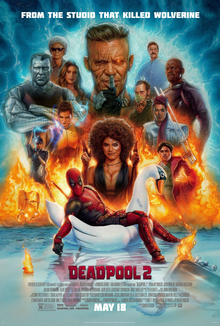Thanks to the score by Nicholas Britell and the deft screenplay and direction by Barry Jenkins, If Beale Street Could Talk is one of those movies I watched with a perpetual lump in my throat. Beautiful, romantic, and terrifically sad, this is a film that immerses you completely in its characters and forces you to live their experience. When you leave the theater, you still won’t have left Beale Street.
The movie tells the story of Tish (KiKi Layne) and Fonny (Stephan James), two young lovers who are trying to build a life for themselves in 1970s Harlem. Unfortunately, you know right off the bat that things don't go right for them as the film follows a staggered narrative. Therefore, you know Fonny is now in jail, and you will need to contend with that as you revisit how he and Tish fell in love and what she's going to do when she discovers she is pregnant, while he has been wrongfully imprisoned.
Adapted from James Baldwin's searing novel, the movie conveys Baldwin's outrage and despair, with Tish's narration often quoting the novel verbatim. At times, this took me out of the film - Baldwin has a very distinctive voice, and I knew these were his words, not Tish's. But he still spoke the truth. This is a story about how racism infests every single aspect of this young couple's life, and as the opening title card notes, this isn't an individual story. This is a story happening all over America. Despite being set in the 1970s, it is heartbreaking to see how much of this still holds true in 2018, with white police officers falsely accusing black men of crimes, and minorities being pitted against each other to fight for whatever scraps of dignity they can get. Those who are poor try to make their way up, but the system is so inherently rigged against them that the only joy of this movie is watching the love between Tish and Fonny that blooms like a beautiful flower amidst the ugliness around them.
When a character speaks in this movie, they are almost always in the center of the frame, directly addressing the camera. Therefore, when Tish is talking to Fonny, it feels like she is talking to you. This is such a simple but brilliant way to immediately draw the audience into the story and make them feel like a part of this world. And these actors, though newcomers, are going to be household names. Layne and James deliver soul-captivating performances, wringing your heart out as their eyes burn with love and then gradually dim with the realization that life is always going to be unfair. Regina King delivers a knockout supporting performance as Tish's mother, a woman who stands by her daughter and future son-in-law in every harrowing circumstance. Colman Domingo is similarly wonderful as Tish's father, a man who has used every means necessary to support his family and will continue doing so for as long as he needs to.
If Beale Street Could Talk is a mood piece, much like Jenkins' previous masterpiece, Moonlight. There are no hurried takes; the characters have all the time in the world to have long conversations, exchange longing glances, and show you what it's like to be a black woman or man in America. Whether it's housing discrimination, police brutality, or sexual harassment, minorities get the short end of the stick, and often their only hope is to look out for each other. The only good white person in this whole story is the lawyer that Tish finds to help Fonny and even he quickly discovers that helping a black man means he will be ostracized by the establishment. As the movie ends, it becomes clear that this relentless cycle of racism couldn't be broken in the 1970s, and it sure doesn't feel like we have broken it in 2018. But perhaps one small victory we can point to is the presence of filmmakers like Jenkins who can now shine the spotlight on these stories.
The movie tells the story of Tish (KiKi Layne) and Fonny (Stephan James), two young lovers who are trying to build a life for themselves in 1970s Harlem. Unfortunately, you know right off the bat that things don't go right for them as the film follows a staggered narrative. Therefore, you know Fonny is now in jail, and you will need to contend with that as you revisit how he and Tish fell in love and what she's going to do when she discovers she is pregnant, while he has been wrongfully imprisoned.
Adapted from James Baldwin's searing novel, the movie conveys Baldwin's outrage and despair, with Tish's narration often quoting the novel verbatim. At times, this took me out of the film - Baldwin has a very distinctive voice, and I knew these were his words, not Tish's. But he still spoke the truth. This is a story about how racism infests every single aspect of this young couple's life, and as the opening title card notes, this isn't an individual story. This is a story happening all over America. Despite being set in the 1970s, it is heartbreaking to see how much of this still holds true in 2018, with white police officers falsely accusing black men of crimes, and minorities being pitted against each other to fight for whatever scraps of dignity they can get. Those who are poor try to make their way up, but the system is so inherently rigged against them that the only joy of this movie is watching the love between Tish and Fonny that blooms like a beautiful flower amidst the ugliness around them.
When a character speaks in this movie, they are almost always in the center of the frame, directly addressing the camera. Therefore, when Tish is talking to Fonny, it feels like she is talking to you. This is such a simple but brilliant way to immediately draw the audience into the story and make them feel like a part of this world. And these actors, though newcomers, are going to be household names. Layne and James deliver soul-captivating performances, wringing your heart out as their eyes burn with love and then gradually dim with the realization that life is always going to be unfair. Regina King delivers a knockout supporting performance as Tish's mother, a woman who stands by her daughter and future son-in-law in every harrowing circumstance. Colman Domingo is similarly wonderful as Tish's father, a man who has used every means necessary to support his family and will continue doing so for as long as he needs to.
If Beale Street Could Talk is a mood piece, much like Jenkins' previous masterpiece, Moonlight. There are no hurried takes; the characters have all the time in the world to have long conversations, exchange longing glances, and show you what it's like to be a black woman or man in America. Whether it's housing discrimination, police brutality, or sexual harassment, minorities get the short end of the stick, and often their only hope is to look out for each other. The only good white person in this whole story is the lawyer that Tish finds to help Fonny and even he quickly discovers that helping a black man means he will be ostracized by the establishment. As the movie ends, it becomes clear that this relentless cycle of racism couldn't be broken in the 1970s, and it sure doesn't feel like we have broken it in 2018. But perhaps one small victory we can point to is the presence of filmmakers like Jenkins who can now shine the spotlight on these stories.


.png)

.png)


.png)


















